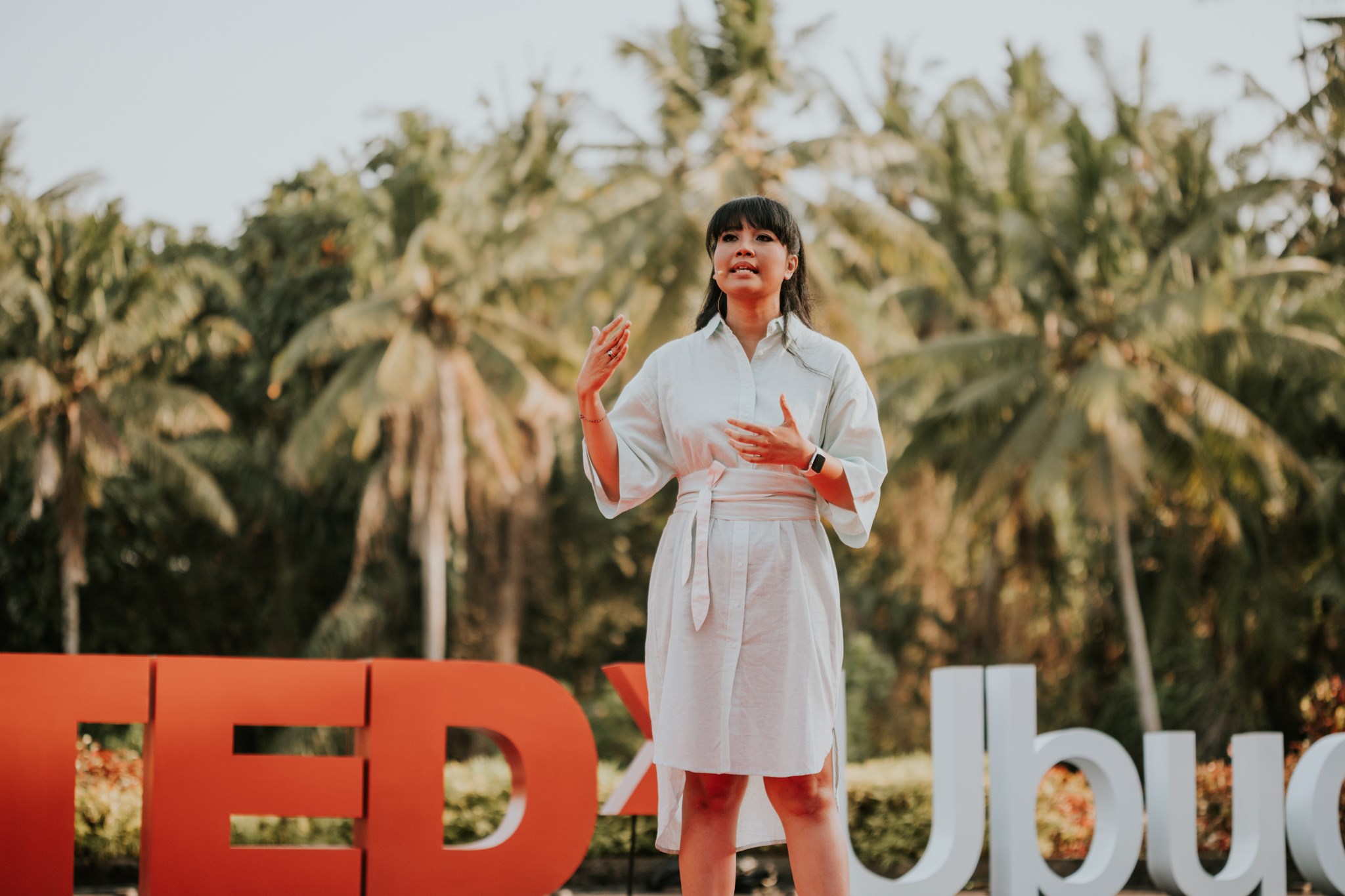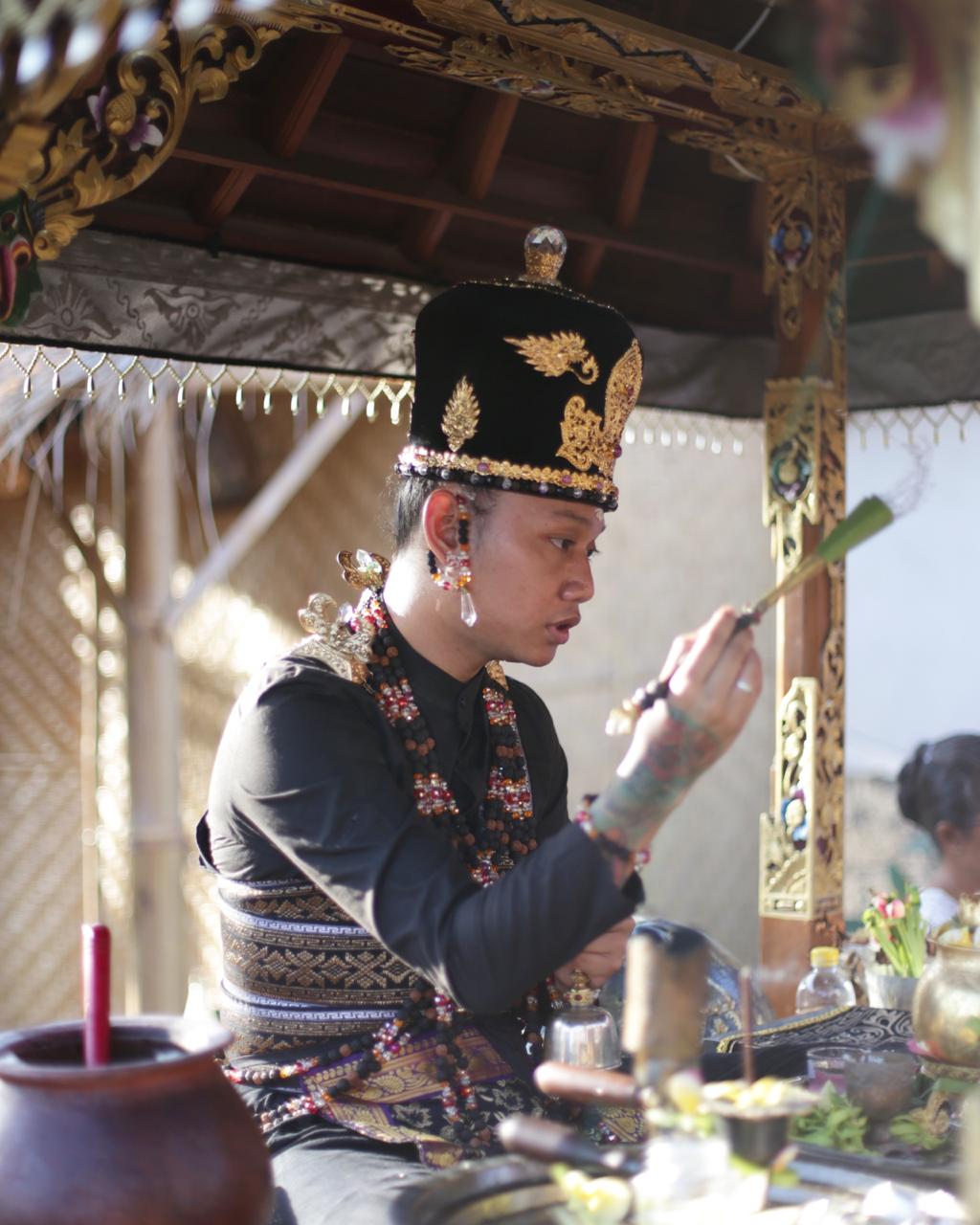Culture vs Corona: How Balinese Hindus are responding to restrictions on ceremonial life
The phrase “Bali tak pernah sepi dari suara upacara,” which loosely translates as “Bali is never silent from the sounds of ceremonies,” was once used to describe the island’s constant ceremonial life.
Even on Nyepi, the most sacred day in the Balinese Saka calendar, the silence resulting from the island-wide shutdown affirms the perpetual rhythm of Balinese Hindu rituals. As COVID-19 has changed the way we can safely physically interact, restrictions on ceremonies are a challenging new reality for Bali’s 93 percent Hindu population.
On March 20, five days after President Joko Widodo advised the nation to “work from home, study from home, [and] pray from home,” Bali Governor Wayan Koster limited attendance at Melasti, a major purification ritual, to 25 people per village. Not since the 1963 eruption of Mount Agung, which killed between 1,000 and 1,500 people, had ceremony attendance numbers been restricted.
Koster also prohibited the parading of all Ogoh-ogoh for Pengrupukan, the purpose of which is to scare away the spirits of the underworld on the night before Nyepi. Although the parade has been postponed until August, some Ogoh-ogoh were abandoned mid-construction. According to writer, activist and academic Saras Dewi, when the limitations were announced, “people were distraught, especially as Melasti is for purifying our lives, and the Ogoh-ogoh parade is one of Bali’s biggest Hindu festivals.”

On March 27, the island’s religious authorities, Parisadha Hindu Dharma Indonesia (PHDI) and Majelis Desa Adat (traditional village council), issued a joint decision on all types of ceremonies and other traditional practices conducted during the pandemic. Ceremonies that can be delayed until the COVID-19 emergency response has ended include tooth filings, mass funerals and cremations, and weddings. Those that can’t be delayed, which are all types of temple ceremonies, should only be performed at the lowest customary level by the essential religious figures, with social distancing and hygiene measures in place.
For Ida Bagus Agung Brahmadiguna, owner of HandMAD Art & Design, the constraints have created the dilemma of “Culture vs Corona.” This slogan, shared on his brand’s Instagram account, has received over 5,000 likes. “It represents the inner struggle between performing traditions and culture, while also fearing corona,” he explained, using the colloquial term for the virus and the disease it causes. “There’s a growing sense of doubt about performing our traditions, because we can’t underestimate the problem of this virus.”
Brahmadiguna strongly believes Balinese Hindus should follow the government’s recommendations. “Our front line only comprises the government and doctors assigned to tackle this virus. Viruses do not look at who we are. We need to ensure the safety of humans first so we can continue our culture and traditions. It’s possible to revive culture, but reviving humans is impossible.”
Some ceremonies that may be delayed are, however, still taking place. Aruni, who didn’t want to reveal her full name, grew up in Jakarta and adopted Hinduism when she married a Balinese in 2016. She feels that “most Balinese are responding to the government’s warnings to stay at home very well, but what destroys this is the pressure from family to attend ceremonies.”
Earlier that day, Aruni had participated in small preliminary rituals at two temples, in the lead up to her husband’s nephew’s wedding in early April. While the reception has been postponed, all the rituals are going ahead, albeit with reduced attendance. Because Aruni and her husband received help with their wedding from her husband’s family, she feels pressured to reciprocate. Aruni did report however that at each temple they’d visited that morning, her husband’s family were wearing masks, using hand sanitizer, and practicing social distancing. Her husband even disinfected the offerings.
Aruni admitted she wanted to share photos of the rituals on social media with the hashtag #loveinthetimeofcorona, but then felt it was inappropriate. “If you want to do a wedding ceremony during a pandemic, do you really want to go ahead with it because you love your partner, or is it just because of the pressure?” she asked. “I think if you really love your partner, you wouldn’t want to force a wedding to happen in a time like this. And, if each set of parents truly love their children and their family, they also wouldn’t force a wedding.”

For many Balinese Hindus, a major shift in perspective on the severity of the pandemic occurred on the night of Pengrupukan, when the sacred summoning drum at Puri Klungkung reportedly sounded by itself. Although only certain religious figures are able to hear it, many believe the sounding of this kulkul is a warning of great danger, for both humans and nature. It’s also said to have sounded before the 1963 eruption of Mount Agung and the 2002 Bali bombings.
Soon after the recent sounding, the religious authorities instructed Hindus to affix a talisman to their home’s entrance, comprising pandan leaf, garlic, red onions and chilis bound by tri datu threads. Some have accompanied the talisman with Tapak Dara, an ancient Balinese symbol believed to ward off plagues and evil forces.
“I think the interpretation that the kulkul sounded by itself was a lot scarier than the information circulated by the governments and other state apparatus. And that’s the uniqueness of Balinese society,” explained Saras Dewi. “There are two signs of life,” she continued. “The first is how we must be careful in reading nature’s symptoms, and the second is reading the unseen. This task is a lot harder, as we must use our faith, which is Śraddhā in Sanskrit. I think the kulkul sounding by itself is also a manifestation of the social anxiety we’re experiencing. But of course we now need all the signs to direct us to the fact that we need to be careful and we need to change our lives in order to survive.”
On the evening of April 2, Hindus across the island were instructed to conduct a special prayer to placate the spirits of the underworld and restore balance to the universe. Non-Hindus were also invited to pray according to their own beliefs. As part of the prayer, Hindus made an offering of a human figure formed with cooked rice of spiritually significant colors, called nasi wong-wongan. Many shared their creations on social media. According to artist and author Garrett Kam, “the gender of the nasi wong-wongan is optional, the only rule is the placement of colors. Every Balinese is free to create their own figure with this simple rule, such is the flexibility of their beliefs.”
Among all those affected by the restrictions on ceremony attendance, they are perhaps most paradoxical for the island’s religious figures themselves. Ida Mas Dalem Segara was ordained as a sulinggih (priest) in 2018, at 23 years of age. “There are those who are certain that social distancing and self-isolation will ensure our safety, and there are those who think that forces in the unseen realm are more powerful than these measures. This has become the polemic,” he explained. “To be honest, I’m confused about how to give them guidance. But, in my opinion, the best thing for our community is to maintain our relationship with God, and not to let this situation distance ourselves from God. If we continue to follow God, good things will happen.”
For Dayu Dewi Yanti, a part-time domestic worker, mebakti jumah (praying at home) is spiritually sufficient during the pandemic. “Praying makes me feel calm. It makes my worries smaller. As long as you’re pure, praying at home during the time of coronavirus is fine,” she insisted. “We’re following the government’s warnings because we don’t want to bring danger into our home. Sang Hyang Widhi Wasa (the divine order) will understand.”
Julia Winterflood is a freelance writer, editor, and translator who has called Indonesia home since 2014. She previously managed English language media for Ubud Writers & Readers Festival and Ubud Food Festival. She’s a part of independent arts and literature initiative InterSastra, and her writing has been published in Mekong Review and by Asialink Arts.
We’ve removed the paywall on our coronavirus coverage to make it available to all. If you find it useful, please consider supporting by becoming a COCO+ Member or Patron.


